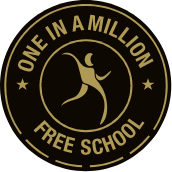History
History is the study of people; in particular their motives, actions and responses. History is therefore vital in helping students to position themselves in society, by encouraging them to reflect and begin to understand their identity, their choices and their role as an effective global citizen. We aim to foster a genuine interest in History, both as an academic discipline (with students choosing to take GCSE History as an optional subject) and as a means by which our students can understand and participate in the world around them. The goal of our curriculum is to develop students as independent learners and critical, reflective thinkers. The knowledge and skills taught in History enables our students to develop an awareness of why people, events and developments have been valued as historically significant and why different interpretations have been constructed about them.
The content covered in our curriculum gives students the opportunity to explore issues at a local, national and international level from the Middle Ages right up to the twenty-first century. Careful sequencing gives students a broad understanding of the chronological developments of British history, as well as being able to make links to other societies, cultures and world events. This range of history offers opportunities to explore different peoples’ perspectives on issues and events.
Understanding key concepts within History, such as significance, causation and consequence, engages and allows our students to be able to ask questions, analyse information and convey their views in a considered way. These skills are honed and developed progressively through the curriculum to create students who are confident in articulating informed views, both in written and verbal communication.
KEY STAGE 3
At KS3, History is taught through the process of inquiry, focused on a series of key questions, which lead students to make informed evidence-based judgements. We encourage students to ask their own questions so that as good historians, students understand that they must support arguments with evidence which is subject to scrutiny and interpretation. At KS3, students appreciate the skills needed to be a historian by understanding how to communicate their learning from historical sources of evidence and reach an evidence-based judgement. Our students learn how to structure accurate and clear historical explanations to reach their own judgements. They recognise that there is often no one right answer to historical questions and appreciate that their own judgements and the judgements of others (including historians) are matters of interpretation. The Key Stage 3 History curriculum will develop all of these skills through the learning of historical topics aligned to the National Curriculum.
Throughout Key Stage 3, our students are introduced to the skills necessary for success in History as an option GCSE subject.
KEY STAGE 4 (Option Choice)
At Key Stage 4 students study carefully selected topics which build upon the knowledge and understanding developed at Key Stage 3. Students study specific key events, periods and societies in local, British, and wider world context (including the wider diversity of human experience). For example, our GCSE students will study The American West; Medicine in Britain (from 1250 to the present day), Surgery on the British Western Front (1914–18); Weimar and Nazi Germany (1918–39) and Elizabethan England (1558-1588).
As well as studying a knowledge rich curriculum, our students will learn the appropriate skills to ensure that they can successfully engage in historical enquiry, develop the ability to ask relevant questions about the past, investigate issues critically, and make valid historical claims by using a range of sources in their historical context. The curriculum will also teach our students to organise and communicate their historical knowledge and understanding in different ways to reach substantiated conclusions.
What Parents/Carers can do to help:
Your child has been given a Knowledge Organiser for each topic they study. This summarises the key information they must know if they are to be successful in this subject. Please encourage them to learn this off by heart and revise topics regularly.
